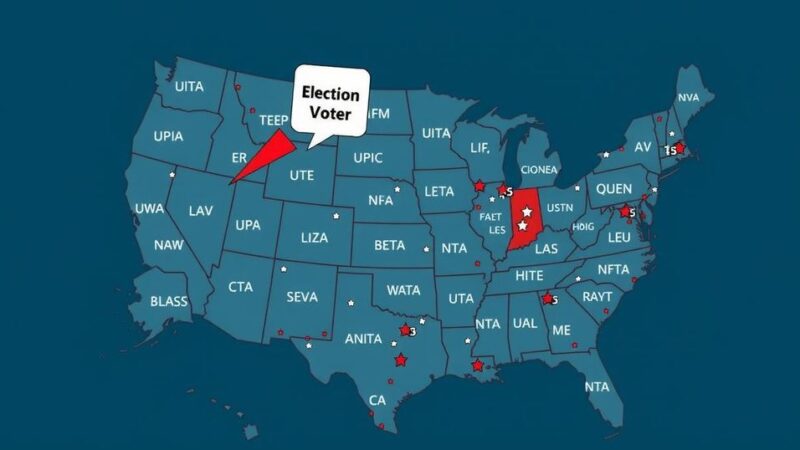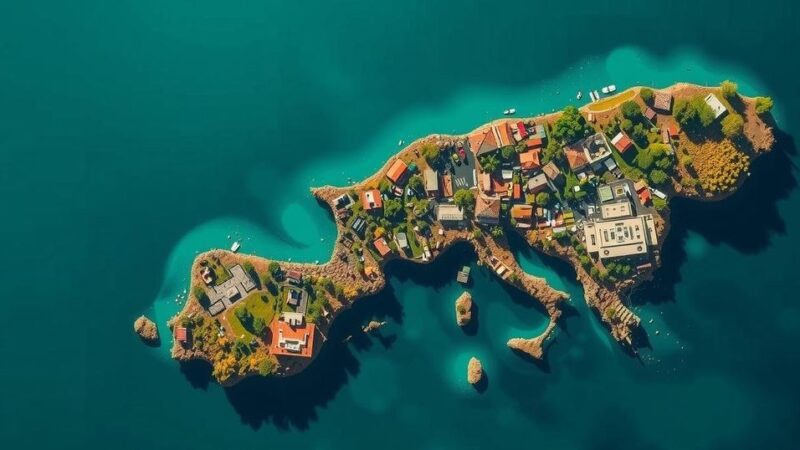Vincent Bevins’ *The Jakarta Method* examines America’s violent interventions during the Cold War, particularly in Indonesia and Brazil, revealing the devastating effects of these actions. The mass killings and subsequent political repression shaped the geopolitical landscape, resulting in entrenched capitalism and ongoing anti-communist sentiments. Personal stories illustrate the enduring trauma experienced by those affected, arguing for a critical recognition of these historical injustices in understanding today’s political realities.
The United States’ involvement in Cold War interventions has had long-lasting impacts on global politics, particularly in Latin America and Southeast Asia. This historical legacy is vividly examined in Vincent Bevins’ book, The Jakarta Method, which delves into America’s violent interventions aimed at quashing leftist movements, particularly evident in Indonesia and Brazil. The book recounts the overthrow of Indonesian President Sukarno in 1967 and the mass killings that followed, which resulted in the deaths of an estimated one million people accused of communism. Such actions not only traumatized the nations involved but also established a precedent for America’s anti-communist strategies across the globe. As a result, these interventions have created a geopolitical landscape where capitalism has taken deep root, often at the expense of social democracy. Events such as the recent attacks on the Cuban embassy and statements from Brazilian officials downplaying military dictatorship crimes highlight the ongoing repercussions of past U.S. policies. Anti-communist sentiment continues to inform political discourse and action in these regions, as reflected in the rise of contemporary leaders like Brazil’s Jair Bolsonaro, who embody a reactionary ideology rooted in Cold War-era attitudes. Bevins’ work not only provides a historical narrative but also reveals personal stories that illustrate the human cost of these policies. By chronicling the lives of individuals caught in the crossfire of geopolitical conflict, The Jakarta Method compels readers to confront the far-reaching consequences of America’s Cold War crimes and their enduring effects on social and political realities worldwide.
The historical context of the Cold War reveals a United States determined to eliminate leftist influences globally, often resorting to extreme violence under the guise of fighting communism. This approach not only destabilized many countries but also fostered long-term trauma and political repression in nations such as Indonesia and Brazil, which are explored in-depth in Vincent Bevins’ *The Jakarta Method*. This book synthesizes historical events with personal narratives, shedding light on the human experiences behind political upheaval. The extraordinary lengths to which the United States went to suppress alternative governance systems during this era continue to shape contemporary international relations and domestic politics.
The exploration of America’s Cold War strategies in *The Jakarta Method* underscores the brutality of U.S. interventions and their lasting impact on today’s global socio-political landscape. By drawing connections between historical actions and present-day outcomes, the book invites a deeper understanding of the ideological battles that continue to influence politics in both the United States and the former ‘Third World’ nations. It is essential to recognize these histories to comprehend the persistent undercurrents of anti-communism and economic control that beset contemporary governance.
Original Source: jacobin.com






